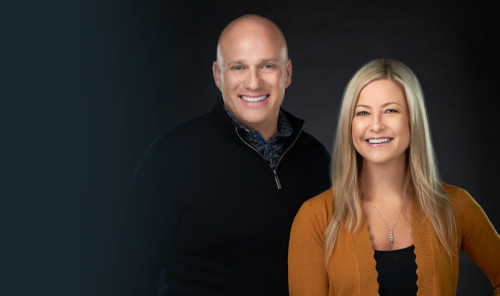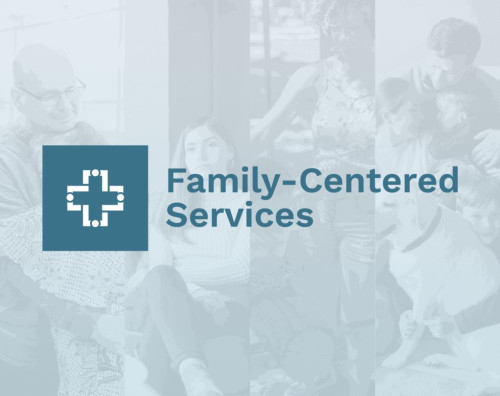



Family-Centered Services
Treatment Focus
This center treats substance use disorders and mental health conditions. You'll receive individualized care catered to your unique situation and diagnosis, learn practical skills for recovery, and make new connections in a restorative environment.
Primary Level of Care
Claimed
Recovery.com has connected directly with this treatment provider to validate the information in their profile.
Treatment Focus
This center treats substance use disorders and mental health conditions. You'll receive individualized care catered to your unique situation and diagnosis, learn practical skills for recovery, and make new connections in a restorative environment.
Primary Level of Care
Provider's Policy
We operate on a private pay basis. Although we don't handle direct insurance billing, we provide 'super bills'. These are detailed invoices tailored for insurance purposes, which clients can then submit to their insurers. Many of our clients use these super bills to successfully obtain reimbursement.
Family-Centered Services
Family-Centered Services
About Family-Centered Services
Family-Centered Services seeks to help individuals and their families struggling with substance use and co-occurring mental health concerns through all stages of recovery, from initial intervention to sober accountability long term. Services include intervention planning, individual therapy, family counseling, recovery coaching, and sober companions. Family-Centered Services is private pay but provides invoices to assist with insurance reimbursement. While their main office is located in Spokane, Family-Centered Services also offers virtual options and has an office in Issaquah, near Seattle, helping them serve clients across Washington.
Interventions
Families hoping to help a loved one with substance-use concerns start by completing an assessment about their identified loved one (ILO). After an initial consultation, the Family-Centered Services team helps craft an intervention plan, interviewing and assembling a team of loved ones who will be part of the intervention. The team meets the day prior to the intervention, rehearsing and taking part in addiction education, then completes the intervention the next day. The Family-Centered Services team accompanies the identified loved one to treatment and supports the family through family counseling sessions post treatment.
Long-Term Care
Family-Centered Services offers case management designed to make recovery a collective family experience, tailoring treatment to the individual and well as their loved ones. Their individual and family counseling approach focuses on compassionate care and individual treatment for a broad range of addiction and mental health concerns, with a focus on psychoeducation and relapse prevention. Family-Centered Services also offers sober accountability, implementing a tool called SoberLink for alcohol use and drug testing for individuals with other substance use concerns.
Center Overview
Treatment Focus
This center treats substance use disorders and mental health conditions. You'll receive individualized care catered to your unique situation and diagnosis, learn practical skills for recovery, and make new connections in a restorative environment.
Insurance Accepted
Pricing and Program Length
Estimated Center Costs
The cost listed here (Call for Rates), is an estimate of program cost. Center price can vary based on program and length of stay. Contact the center for more information. Recovery.com strives for price transparency so you can make an informed decision.
Levels of Care








Your Care Options
Specializations
Interventionists
Professionals who helps guide loved ones through an intervention to help someone overcome addiction or mental health issues. They may also help clients find treatment centers and navigate the recovery process.
Family Therapy
Family therapy addresses group dynamics within a family system, with a focus on improving communication and interrupting unhealthy relationship patterns.
Drug Addiction
Drug addiction is the excessive and repetitive use of substances, despite harmful consequences to a person's life, health, and relationships.
Family Involvement
Providers involve family in the treatment of their loved one through family therapy, visits, or both–because addiction is a family disease.
Alcohol
Using alcohol as a coping mechanism, or drinking excessively throughout the week, signals an alcohol use disorder.
Who We Treat
Men and Women
Men and women attend treatment for addiction in a co-ed setting, going to therapy groups together to share experiences, struggles, and successes.
Approaches
Holistic
A non-medicinal, wellness-focused approach that aims to align the mind, body, and spirit for deep and lasting healing.
Evidence-Based
A combination of scientifically rooted therapies and treatments make up evidence-based care, defined by their measured and proven results.
Family Involvement
Providers involve family in the treatment of their loved one through family therapy, visits, or both–because addiction is a family disease.
Individual Treatment
Individual care meets the needs of each patient, using personalized treatment to provide them the most relevant care and greatest chance of success.
Therapies
1-on-1 Counseling
Patient and therapist meet 1-on-1 to work through difficult emotions and behavioral challenges in a personal, private setting.
Family Therapy
Family therapy addresses group dynamics within a family system, with a focus on improving communication and interrupting unhealthy relationship patterns.
Psychoeducation
This method combines treatment with education, teaching patients about different paths toward recovery. This empowers them to make more effective decisions.
Relapse Prevention Counseling
Relapse prevention counselors teach patients to recognize the signs of relapse and reduce their risk.
Conditions We Treat
Anxiety
Anxiety is a common mental health condition that can include excessive worry, panic attacks, physical tension, and increased blood pressure.
Depression
Symptoms of depression may include fatigue, a sense of numbness, and loss of interest in activities. This condition can range from mild to severe.
Trauma
Some traumatic events are so disturbing that they cause long-term mental health problems. Those ongoing issues can also be referred to as "trauma."
Substances We Treat
Co-Occurring Disorders
A person with multiple mental health diagnoses, such as addiction and depression, has co-occurring disorders also called dual diagnosis.
Drug Addiction
Drug addiction is the excessive and repetitive use of substances, despite harmful consequences to a person's life, health, and relationships.
Alcohol
Using alcohol as a coping mechanism, or drinking excessively throughout the week, signals an alcohol use disorder.





